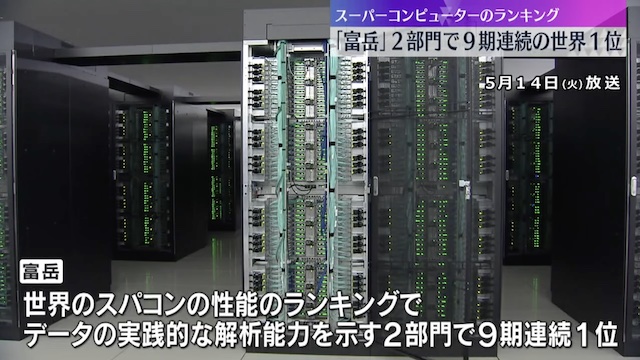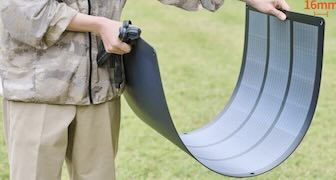TOKYO, May 15 (News On Japan) - The supercomputer 'Fugaku' has achieved the world’s top ranking in two categories for the ninth consecutive term.

According to RIKEN, Fugaku secured first place in two practical performance evaluation categories in the biannual global supercomputer rankings. These categories assess the ability to perform practical data analysis.
Developed jointly by RIKEN and Fujitsu with a government investment of 110 billion yen, Fugaku has been operational for three years. It has been used for various applications, including simulations of droplet dispersal from the mouth and predicting linear precipitation zones that cause heavy rain.
Despite ranking fourth for the second consecutive term in the computational speed category, RIKEN commented, "Fugaku continues to demonstrate world-class overall capabilities."
Source: YOMIURI















